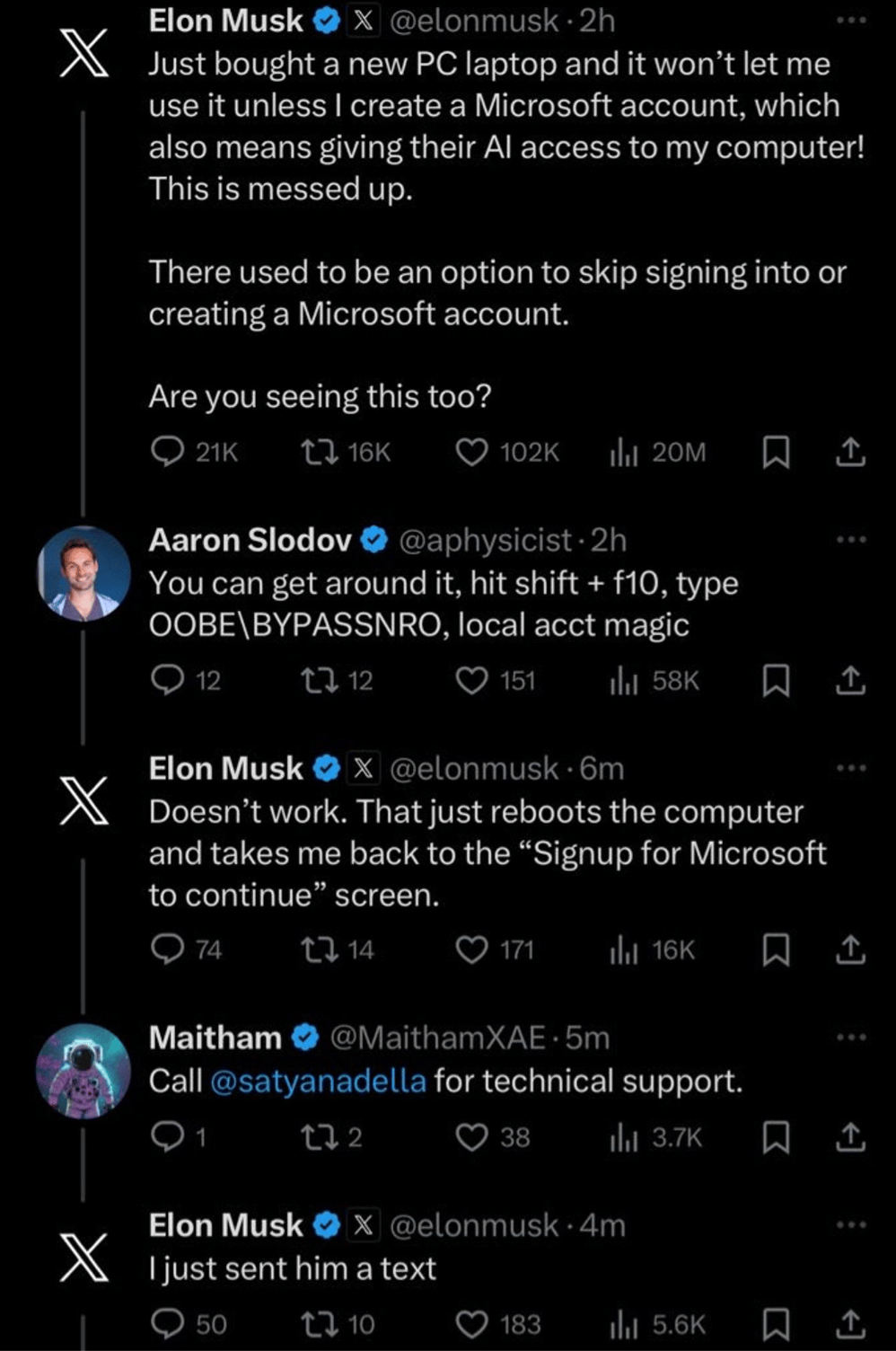Cup of Coffee: February 27, 2024
A longtime Dodger returns, a longtime Giant finds a new home, the White Sox get some bad news, a workhorse shuffles off the mortal coil, Peter King says goodbye, the Clippers, Musk, and the Southern Thing.

Good morning!
Things and stuff happened yesterday, and we have it here. Sadly I didn’t get any more legal threats, however. They’re such fun, but you really have to savor them when you get them, as they don’t happen every day. Alas.
The Daily Briefing
Dodgers trade Manuel Margot to the Twins, sign Kiké Hernández
We had a little deal yesterday: the Minnesota Twins acquired outfielder Manuel Margot from the Los Angeles Dodgers for shortstop Noah Miller. And then, as a spinout from that deal, we got this:
Always good when the players involved in a deal break the news.
Hernández’s deal is for one year and $4 million. The Dodgers, for what it’s worth, will send cash to help cover the $12 million owed Margot on his $10 million for this year and a $2 million buyout on a $12 million club option for 2025.
Hernández will get most of his playing time against left-handed pitchers, with the Dodgers primary shortstop, Gavin Lux, and center fielder, James Outman, getting the bulk of the playing time.
Honestly, though, this seems more about continuity with Hernández stepping back into the Dodgers fold. They love him. Dodgers fans love him. The world feels better with Kiké in Los Angeles.
The Cardinals sign Brandon Crawford
The St. Louis Cardinals have signed longtime San Francisco Giants infielder Brandon Crawford to a one-year deal. He is expected to serve as a backup shortstop behind rookie Masyn Winn.
Crawford spent the previous 13 years of his major-league career with the Giants, playing a key role in the team’s 2012 and 2014 World Series championships. He appeared in just 93 games last season due to various injuries, however, and posted a .194/.273/.314 (63 OPS+) line last season.
That might suggest that he’s done, but hey, veteran presence, right?
Sorry, Jerry. At least for ow.
The governor of Illinois is not super impressed with the White Sox’ demands.
As noted previously, Jerry Reinsdorf went down to Springfield last week to make the case to Illinois lawmakers that they should give him a billion dollars of taxpayer money to build a new stadium for the White Sox. Yesterday Illinois governor J.B. Prtizker talked about that:
I think there’s still a lot of work to be done by the White Sox as well as with members of the General Assembly. But I will say that I think I’ve been really clear about the fact that the taxpayer dollars are precious, and the idea of taking taxpayer dollars and subsidizing the building of a stadium, as opposed to, for example, subsidizing the building of a birthing center, just to give the example, does not seem like the stadium ought to have the higher priority.
Having said that, I think many of us sports fans, we all want to see the teams succeed. But these are private businesses. And we’ve seen other teams be able to support their own stadiums privately. That would be ideal here. And I think that’s something that I would encourage, I think the city of Chicago is engaged as well with them. But I wouldn’t put any number forward. I start out really reluctant. And unless a case is made that the investment yields a long-term return for taxpayers that we can justify in some way, I haven’t seen that yet. And to be clear, nobody has presented directly to me, my staff has seen a presentation. So I just want you to know that I started out a bit reluctant. Having said that, I’m a fan of all of our teams and I want them to succeed. Although I’m a Cubs fan, first and foremost. Sorry for all White Sox fans.
The information that we’ve gotten so far is still very limited. How the taxpayer is going to benefit from this still hasn’t been put forward to us. It’s just what the need is. And of course, I think the picture that we’ve all seen, the drawing anyway, in the newspaper all look terrific. But, but again, that’s not enough to make it a priority in my view for Springfield.
I like most of that answer. It’s not a flat “no,” however, mostly because there apparently isn’t even a concrete proposal from the team yet. I worry that he’s leaving the door open for evidence that “the investment yields a long-term return for the taxpayers that we can justify in some way.” Lord knows we’ve seen politicians, over and over, give lip service to the need for that sort of showing and then simply roll over when a bogus “economic impact study” from a clearly interested party is set forth as a fig leaf. Studies which completely ignore other rigorous, peer-review studies showing that there is no economic benefit to be found from such investments. At least to anyone other than the owners of the teams.
That said, this is a pretty good first answer from Prtizker. Let’s hope he holds to it and the White Sox, if they do want a new stadium, pay for it their own damn selves.
Speaking of Chicago baseball owners wanting money . . .
Cubs want $30 million from Chicago for security
According to a report in Crain’s Chicago Business, the Cubs are planning to ask Chicago mayor Brandon Johnson for $30 million to increase security around Wrigley Field in the hopes of getting the 2027 All-Star Game. The fact that this comes a day after the Cubs agreed to pay Cody Bellinger $30 million for the upcoming season makes this great optics.
I don’t know anything about how Brandon Johnson rolls, but I hope his response to the Cubs is “then write a check to a security company for the upgrades you want. Why are you bothering me with this?”
José DeLeón: 1960-2024
Major League pitcher José DeLeón, who enjoyed a 13-year big league career and who led the National League in strikeouts in 1989, has died at the age of 63. He had cancer.
DeLeón was born in the Dominican Republic but spent his high school years in New Jersey. He was a third-round draft pick for Pittsburgh in 1979 and made his debut in 1983. He had pretty electric stuff but it was stuff that was often hard for him to harness, so on one day he might strike out ten or more batters while allowing two hits over eight innings and then four days later he’d get shelled. He was streaky and he also had the misfortune of playing for some not-so-great teams which led to poor run support and a lot of losses which weren’t always reflective of the quality of his pitching. When you watched him pitch you could imagine him becoming an ace even if he never truly did so. I’ve always had a soft spot in my heart for pitchers like that, and I vividly remember watching him face Atlanta teams in the late 80s and early 90s, equally expecting a shutdown performance or four ignominious innings.
DeLeón pitched in the bigs from 1983 to 1995, debuting and playing his first four seasons for the Pittsburgh Pirates before stints with the Chicago White Sox — fun fact: he was Chicago’s return when they sent a young Bobby Bonilla to the Pirates — the St. Louis Cardinals, Philadelphia Phillies, and Montreal Expos. His finest season was probably 1989 when, while pitching for St. Louis, he went 16-12 while striking out 201 batters, allowed a league-lowest 6.4 hits per nine innings pitched, and tossed five complete games. His best game that year and perhaps in his entire career was not a complete game, however. It was an 11-inning performance on August 30 in which he allowed only one hit and faced the minimum number of batters — 33 — en route to a no-decision against the Reds in a 13-inning Cardinals loss.
DeLeón finished his career as a reliever, ultimately retiring following the 1995 campaign, split between the White Sox and the Expos. In all he went 86-119 with a 3.76 (102 ERA+) in 415 appearances, 264 of which were starts.
Rest in peace, José DeLeón.
Other Stuff
Peter King hangs ‘em up
NBC's Peter King has announced his retirement after 44 years covering the NFL.
Though I’m not a football guy and haven’t been a football guy for a very long time, I was a Sports Illustrated subscriber during the first decade or so of King’s tenure there and my time at NBC Sports overlapped with his. And really, even if you’re not a football fan, King was someone whose work you knew if you were anywhere near the sports space. He was a big voice and a big personality in the corner of media in which I’ve kinda sorta been for many years.
I actually got to meet King on a few occasions. This was back when NBC Sports Network was trying to launch its SportsCenter-style studio show, NBC Sports Talk circa 2010-15 or so. He was a regular football talking head and I, at least a handful of times, was flown up to the NBC Sports studios in Stamford, Connecticut to be a baseball talking head on that show.
Before the broadcast everyone who would be on that night would gather in host Eric Kuselias’ office, which doubled as the green room. Theoretically we were supposed to use that time talk about the plan for that evening’s show, but we all knew the drill. There would be X number of topics, all of which were making sports headlines that day. At some point, Kuselias would throw it open to whichever talking head was appropriate for the topic and we’d give our little spiel or take or whatever. If anything it was better if it wasn’t rehearsed, so we used the time in the room to bullshit. I met Doug Flutie in that green rooom. Amani Toomer. Ross Tucker. The late, great Darryl Hamilton. Sometimes Joe Sheehan and I would be on at the same time, wondering why they hell they let nerds like us be on TV alongside actual sports stars.
And then there was King.
On the three or four occasions we were on the same show together, he’d always be sitting on the couch when I got there, which was saying something because I was always early. Unlike some of the guests who came in with a bunch of printed off pages or their personal laptops, making sure they were up to date on everything going on or, in some cases, writing out what they planned to say on the show, King was always super relaxed. He knew everything about everything already and he was perfectly at home in front of the camera so it was barely work for him. He’d sit on that couch and chew gum. Lots and lots and lots of gum, like a chainsmoker who had switched to Wrigley’s. I don’t know enough about him personally to know if that’s actually the case, but it seemed like it.
The thing that stood out the most about King, however, was that unlike some of the famous people who might come into that room, act aloof, and mildly big-time peons like me, he actually enjoyed shooting the shit. He’d ask about my trip up to Connecticut and where I was staying and my family back home and things. He’d talk about baseball too. Unlike some other football, basketball, or hockey guys who liked to act like they know everything about every sport, however, he wouldn’t pretend he knew more than he did. To be sure, he knew a lot, and he had insights, but he’d also ask questions, too. Genuine questions, the answers of which he was curious to know. He was just a truly nice guy who, despite his fame, had no airs or pretenses about him, at least in my experience.
King wrote his retirement announcement over at NBC Sports yesterday. If you’re a football fan or if you’ve read King’s work for years it’s obviously up your alley. But even if you’re not, he makes several relatable and insightful observations. One, in which he talks about his concerns about NFL media going forward, I agree with him 100%:
My fear, also, is the expansion of NFL Media and contraction of independent beat people covering local teams. Pravda, my old boss Mark Mulvoy calls it. I don’t go that far; I do think there are some excellent beat people working for team sites. But when Roger Goodell signs your paycheck, you know there’s only so far you can go when stories are sensitive. Ask Jim Trotter.
Same goes for when Rob Manfred or Adam Silver or Gary Bettman writes your paycheck. Of if you work for a network that pays one of those leagues for broadcast rights. Which King did, of course, though from what people tell me he remained a straight shooter who wouldn’t stoop to doing P.R. for Roger Goodell.
Enjoy retirement, Peter King. You were one of the good ones.
The Clippers’ new logo
The Los Angeles Clippers are getting a whole uniform/logos/team identity makeover for next season for when they move into their new arena in Inglewood, California. There’s a huge story — which, actually, seems more like PR copy, but whatever — at ESPN about all of that and what all is changing.
I generally don’t think too much about such things in sports besides baseball, but I was sort of amused by the new logo. They are dispensing with the basketball and the sort of rushing “Los Angeles Clippers” logo they’ve had for years and are replacing with with something else. That something else is a clipper ship. Per the article, “The Clippers wanted the ship to look menacing -- as if it were coming straight at you.”
This is it:

I presume those three parallel shapes above the hull of the ship are supposed to be sails, but they sure as hell look like stacked decks. Which, in turn, makes the “clippership” look more like a super yacht. The kind a guy who, like Ballmer, is worth over $100 billion might own. So yeah, appropriate.
This instills confidence
As I have entered my 50s I have increasingly found myself having trouble with even the simplest technical matters. I find myself weirdly resistant to new apps or systems which would probably save me time and effort in favor of older and less efficient solutions. Sometimes even basic device setup proves difficult for me and I end up having to ask my wife or my kids for help. I wasn’t like this even a few short years ago. It’s sort of embarrassing, actually.
I feel, however, that it’d be more embarrassing if I was like that and I was one of America’s key aerospace and defense contractors and I was loudly touting my new project which entails inserting computer chips in people’s brains:

Now if you’ll excuse me, I’m gonna go wade into Musk’s mentions and ask him if he’s tried turning it off and turning it back on again.
A great point from a commenter
Yesterday I mocked law professor/pundit Jonathan Turley’s argument that Joe Biden’s great-great grandfather doing something bad in the 1860s explains why Joe Biden does what he does today. Later in the morning commenter Rob L had some pretty insightful words about that dynamic:
It's this same mental block that gets people to protect the Confederacy or oppose teaching CRT. "If the Confederacy was bad, then my great-great grandparents were bad which means you're insulting me" or "my grandfather built this business from the ground up, and if you're saying he took advantage of an uneven playing field based on skin color, then you're calling me a cheater." These people have the inability to look back even one generation and realize they don't even agree with their parents on everything and are different people than those before them. Turley is well-aware of the critical thinking skills of his audience. If Biden's ancestors did something bad, then Biden is bad. After all, aren't we all being punished for eternity for the disobedience of a rib woman?
There always has been and always will be Confederacy apologists and people who vehemently oppose the teaching about slavery and the Jim Crow/Civil Rights Eras who are motivated by conscious racism and political calculation. I have no doubt, however, that there are a far greater number of people whose resistance to that stuff is a function of what Rob L describes.
People who, for years, heard stories about their Great-Great Grandpappy who fought at the Battle of Chickamauga but who, as they heard it, was a noble man who hated slavery and who was just defending his native Georgia. Or the Great-Grandpappy who lived in a deeply segregated city who, personally, was not racist. People want to believe that because of tribalism and/or because, deep down, on an unconscious level, they worry that if their ancestors were on the wrong side of something it reflects poorly on them. Which is ridiculous, but so much of what humans think is ridiculous.
Anyway, I think Rob’s right that this tribalist, solipsistic approach to life is one of the huge reasons why we never seem to be able to escape our history.
Have a great day everyone.




Comments ()